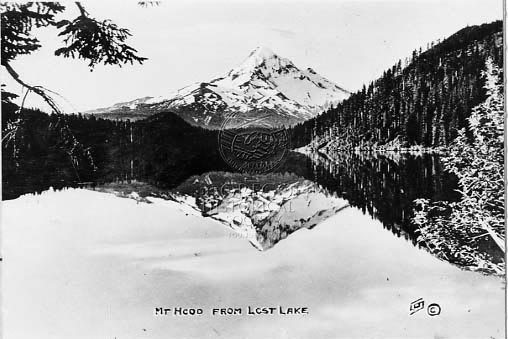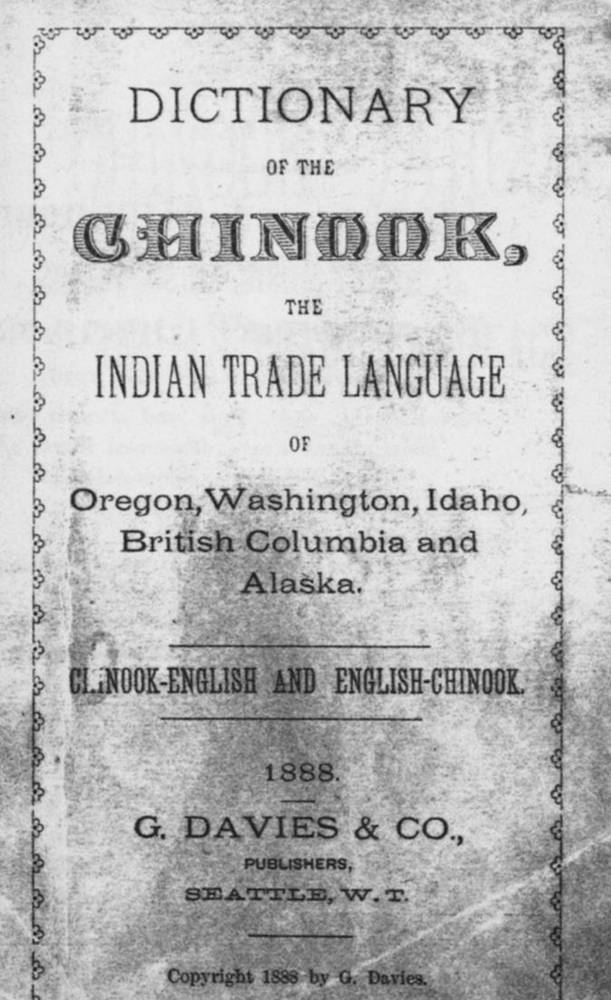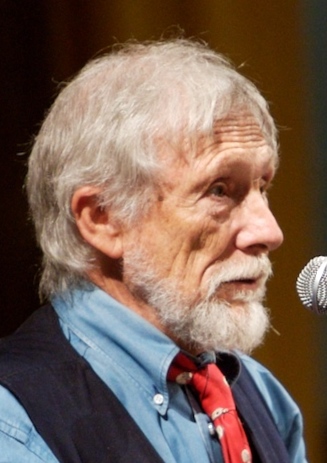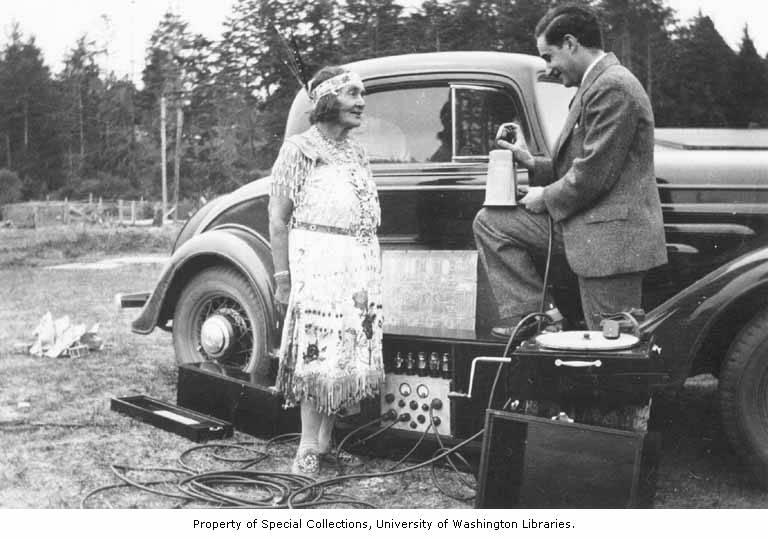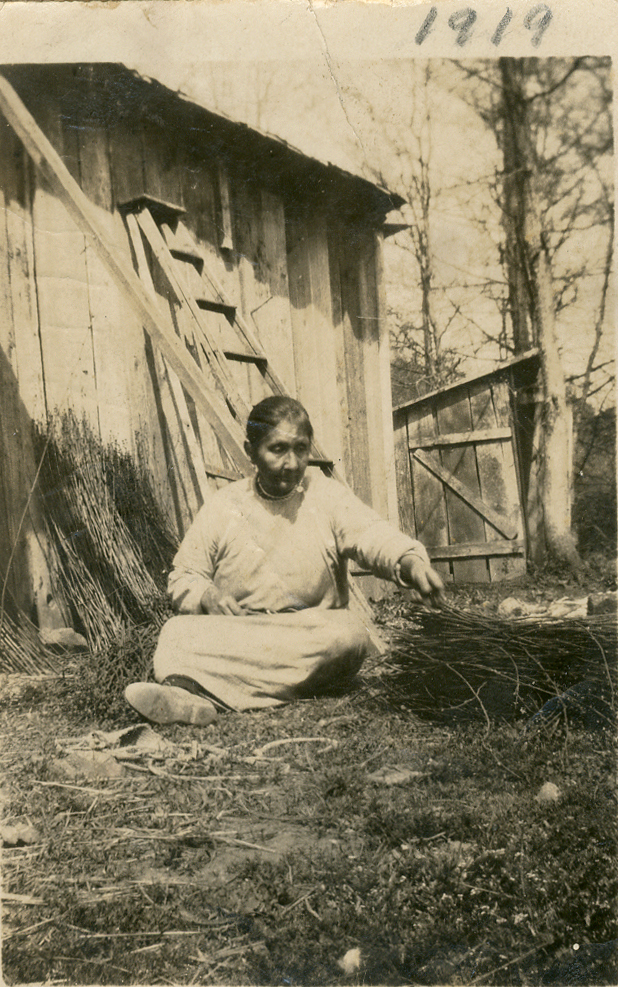One measure of the stature of Dell Hymes as a social scientist in the last three decades of the twentieth century is that he held the presidency, in turn, of the American Folklore Society (1973), the Linguistic Society of America (1982), the American Anthropological Association (1983), and the American Association of Applied Linguistics (1986-1987)—the only scholar to hold all four offices. The influence of his work and ideas in the fields of linguistics, anthropology, ethnography, and folklife, both in the United States and internationally, has continued since his death in 2009, especially in the study of traditional Native American literatures.
Born on June 7, 1927, in Portland, and raised there, Hymes always thought of himself as an Oregonian, for many years spending his summers at a cabin in the Mount Hood National Forest. He attended Reed College, where with his lifelong friend the poet Gary Snyder he studied anthropology and Northwest Indian cultures with David French. His time at Reed was interrupted by service in the U.S. Army in Korea. He graduated from Reed in 1950 and did graduate work at Indiana University, where he earned his doctorate in linguistics with a dissertation on the Kathlamet Chinookan language.
Between 1955 and 1987, Hymes was on the faculties of Harvard University, University of California-Berkeley, and University of Pennsylvania, where he taught in the Anthropology and the Folklore and Folklife departments. From 1975 to 1987, he served as dean of the Graduate School of Education. In 1987, he and his wife Virginia (a sociolinguist and folklorist) moved to the University of Virginia, where he was Commonwealth Professor of Anthropology and English until his retirement in 1998. He died in 2009.
Hymes's intellectual and cultural interests were wide-ranging, and his work was influenced by figures such as Erich Auerbach, Ernest Cassirer, Claude Levi-Strauss, Kenneth Burke, and A.L. Kroeber, as well as a diverse set of modern poets and writers. It is not surprising, then, that much of his work is eclectic and interdisciplinary and that he contributed to the creation of new academic fields that brought together anthropology, ethnography, linguistics, and literary theory.
One of these was sociolinguistics. He founded the journal Language and Society, and in 1974 published a seminal work in the field, Foundations in Sociolinguistics. Another new discipline was ethnopoetics, which seeks to understand traditional verbal art according to the assumptions and conventions operating in the cultures that produced it. Hymes's distinctive application of ethnopoetic analysis—to transcribed texts, many of them recorded long ago as linguistic samples—is largely complementary to the work of Dennis Tedlock, J. Barre Toelken, and others on Native narratives in performance. Both forms of ethnopoetic study share a basic aim—to understand and present Native traditional oral art on its own terms, as free as possible of non-Native cultural and literary stereotypes and conventions.
In 1981, Hymes published his most admired and influential work, 'In Vain I Tried to Tell You': Essays in Native American Ethnopoetics. Underlying this book is his devotion to Northwest Indian cultures, especially their oral literary traditions, based on extensive fieldwork on the Warm Springs Indian Reservation and friendships with Native speakers and storytellers. In a series of brilliant essays on transcribed oral texts from Chinookan and other languages, he shows how such narratives were shaped in performance as "measured verse," following intricate patterns of lines and "stanzas." In Hymes's analysis, the customary practice of printing such works as prose misrepresents them, obscuring their artistry, and one of the signal achievements of 'In Vain' is his retranslation and recasting of Native texts in measured lines and units of lines, according to ethnopoetic principles.
In "The 'Wife' Who 'Goes Out' Like Man: Reinterpretation of a Clackamas Chinook Myth," for example, his verse retranslation of and commentary on a seemingly fragmentary story told by Victoria Howard of Oregon City to Melville Jacobs brings it powerfully to life. Another illustration of Hymesian ethnopoetics is his "Folklore's Nature and the Sun's Myth," dealing with the text of a Kathlamet Chinook narrative told by Charles Cultee to Franz Boas in Bay Center, Washington, in 1890. In Hymes's hands, Cultee's story of a man's apocalyptic encounter with the Sun attains imaginative and prophetic power. It becomes, in the telling, Cultee's mythopoetic creation, a work of art based on his people's now-forgotten mythology which, in Hymes's words, "even in another century and another language can speak to mankind."
Writing in 1962 in Northwest Review, Melville Jacobs, one of Hymes's forebears in the literary study of Northwest Native texts, asked: "Are [Oregon's] Indian literatures so shabbily represented, in such deteriorated versions, or so bleakly unaccompanied by backgrounds of the socio-cultural systems which had maintained them, that annotative commentary on their features of expressive content and style is not possible?" After more than half a century, Jacobs's condemnation of the neglect of the Northwest's native literary heritage still resonates, but Dell Hymes's painstaking work on that heritage stands to show what can be done to conserve, understand, and celebrate it. In the introduction to 'In Vain I Tried to Tell You', he wrote: "With texts, as sometimes with the myths themselves, what is dead can be revived. We cannot bring texts to life by stepping over them five times, but we can by scholarship. There is much to do, and few to do it."
-
![]()
Lost Lake and Mount Hood, by Ralph Gifford.
Oregon Historical Society Research Library, 019676
-
![Mount Hood from Lolo Pass Road]()
Mount Hood.
Mount Hood from Lolo Pass Road Courtesy Jon Bell
Related Entries
-
![Chinook Jargon (Chinuk Wawa)]()
Chinook Jargon (Chinuk Wawa)
According to our best information, the name "Chinook" (pronounced with …
-
![Gary Snyder (1930-)]()
Gary Snyder (1930-)
Many think of Gary Snyder, Pulitzer Prize-wining poet and essayist, as …
-
![Melville Jacobs (1902-1971)]()
Melville Jacobs (1902-1971)
Melville Jacobs did more to document the languages, cultures, oral trad…
-
![Victoria (Wishikin) Wacheno Howard (1867-1930)]()
Victoria (Wishikin) Wacheno Howard (1867-1930)
Victoria (Wishikin) Wacheno Howard was the teller of Clackamas Chinook …
Related Historical Records
Map This on the Oregon History WayFinder
The Oregon History Wayfinder is an interactive map that identifies significant places, people, and events in Oregon history.
Further Reading
Dell Hymes, "In Vain I Tried to Tell You" : Essays in Native American Ethnopoetics. Philadelphia: University of Pennsylvania Press, 1981, 2003.
_________, Now I Know Only This Far": Essays in Ethnopoetics. Lincoln: University of Nebraska Press, 2003.
_________, "Folklore's Nature and the Sun's Myth," Journal of American Folklore, Vol. 88, No. 350 (Oct.-Dec. 1975), 345-369.
Jarold Ramsey, Reading the Fire: Essays in Native American Literatures. Seattle: Universtiry of Washington Press, 1999.
Melville Jacobs, "The Fate of Indian Oral Literatures in Oregon," Northwest Review, 3 (Summer 1962),80-89.

